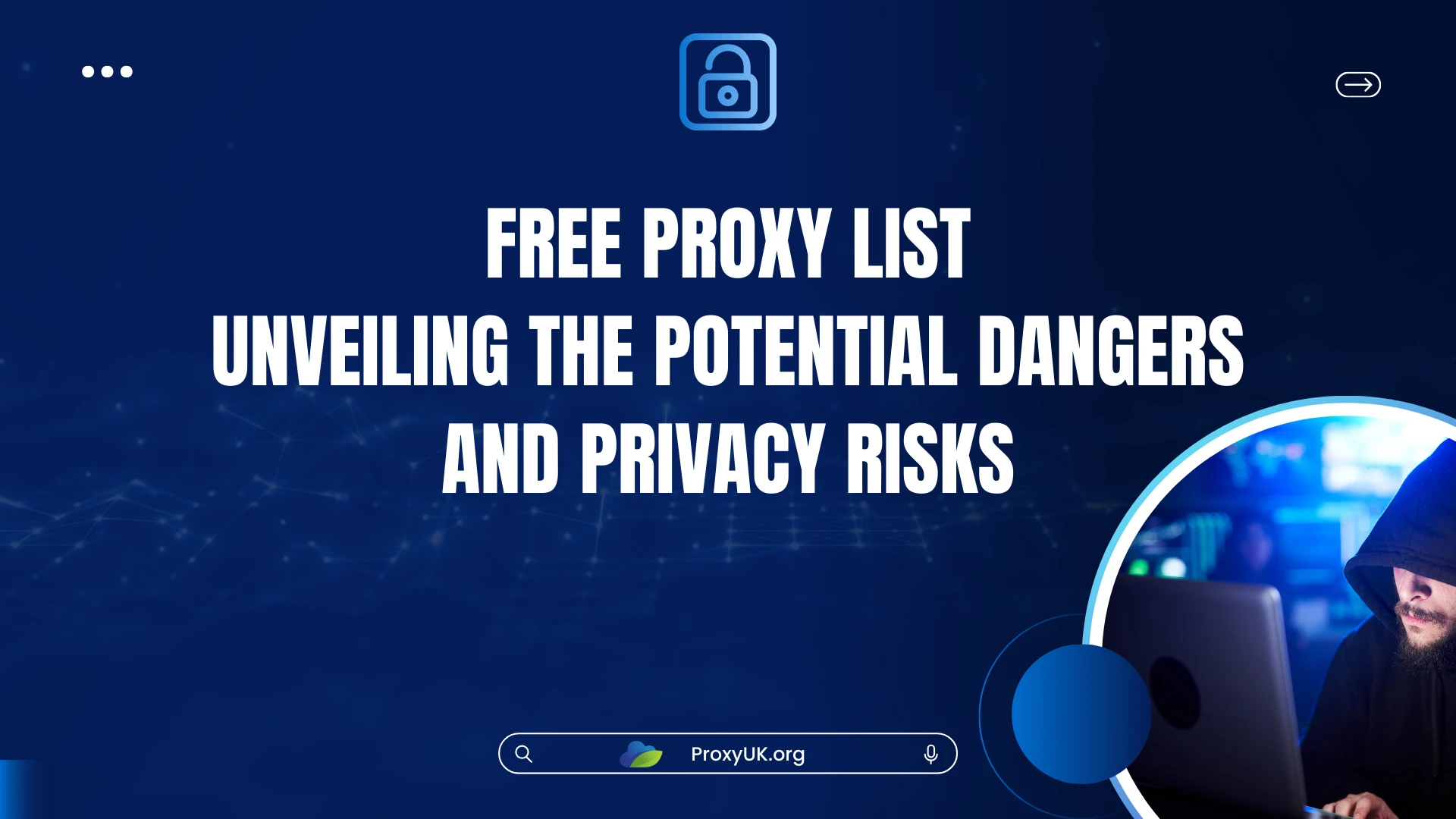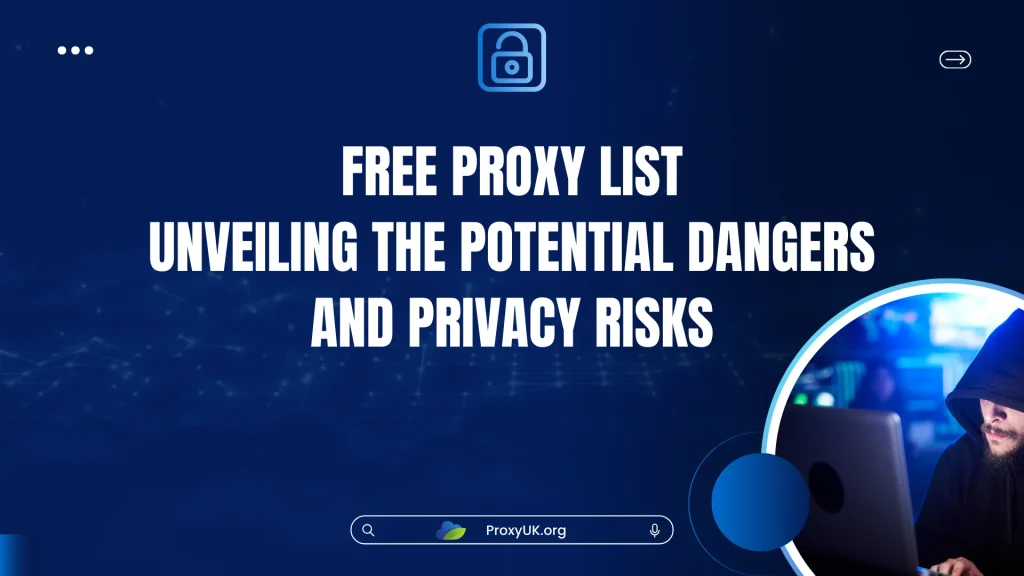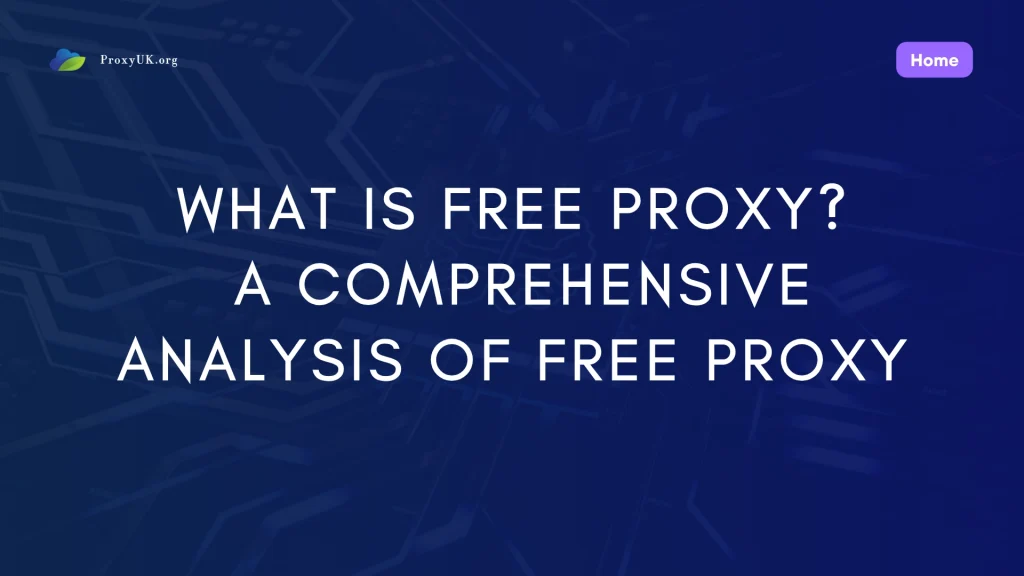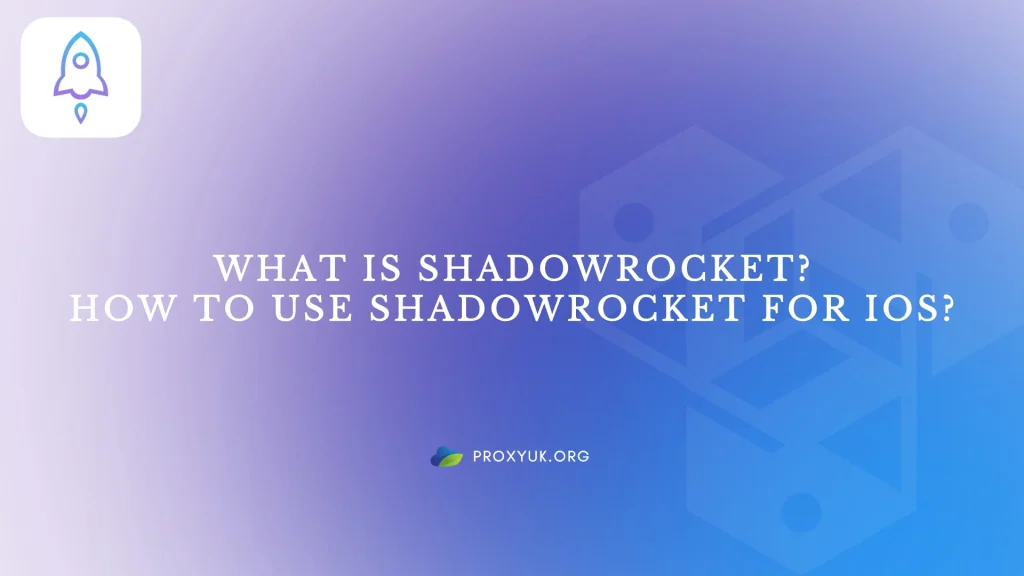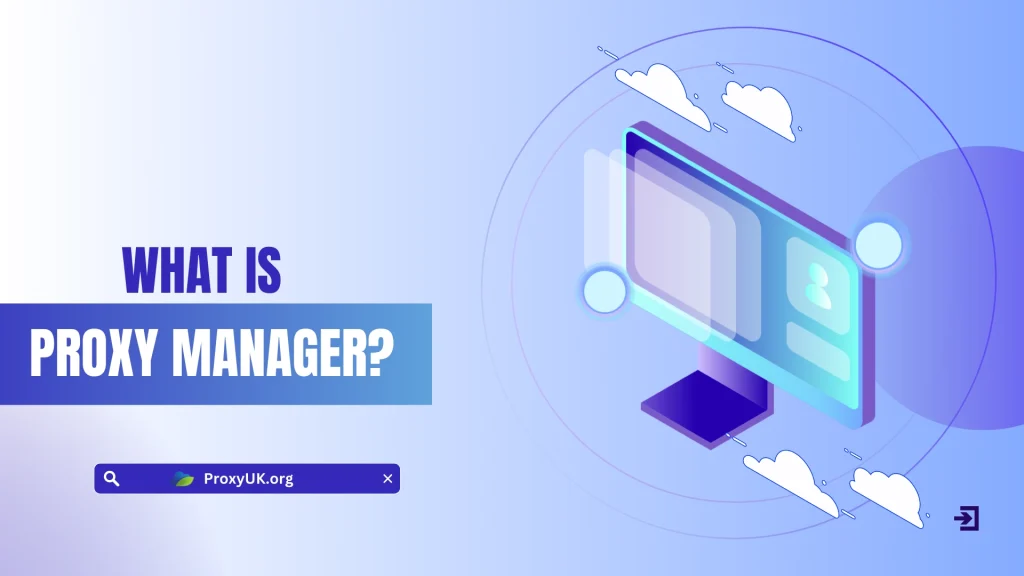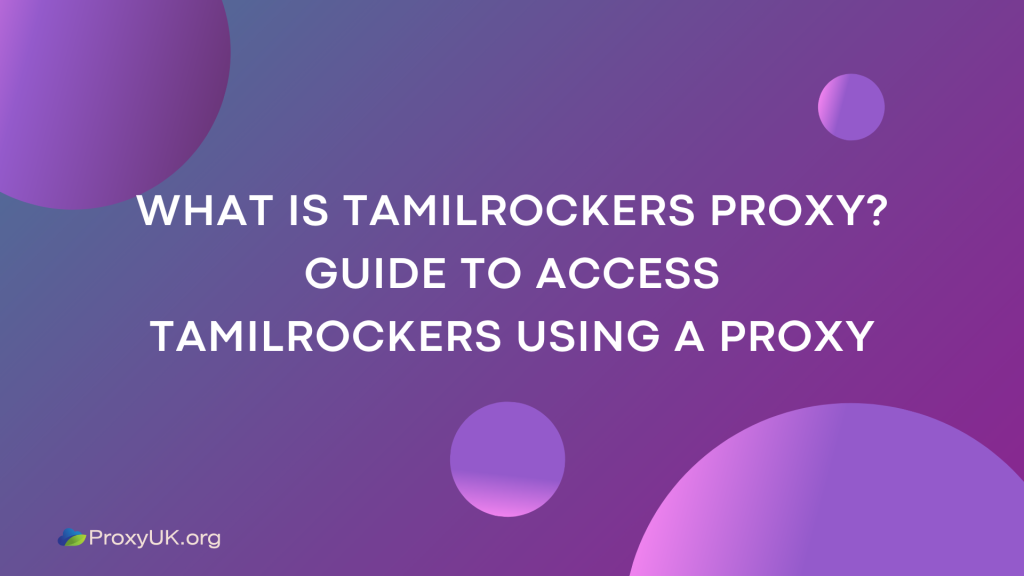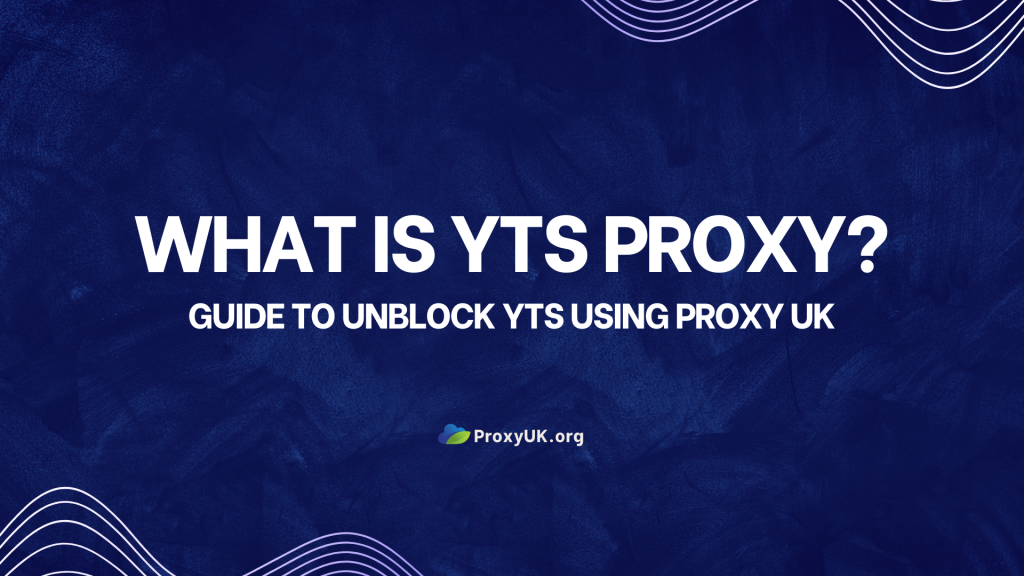A proxy, in the context of computing and the internet, is an intermediary server that separates end users from the websites they browse. In this article, Proxy UK will show you: “What is proxy meaning? The ultimate guide to proxy.”
About proxy
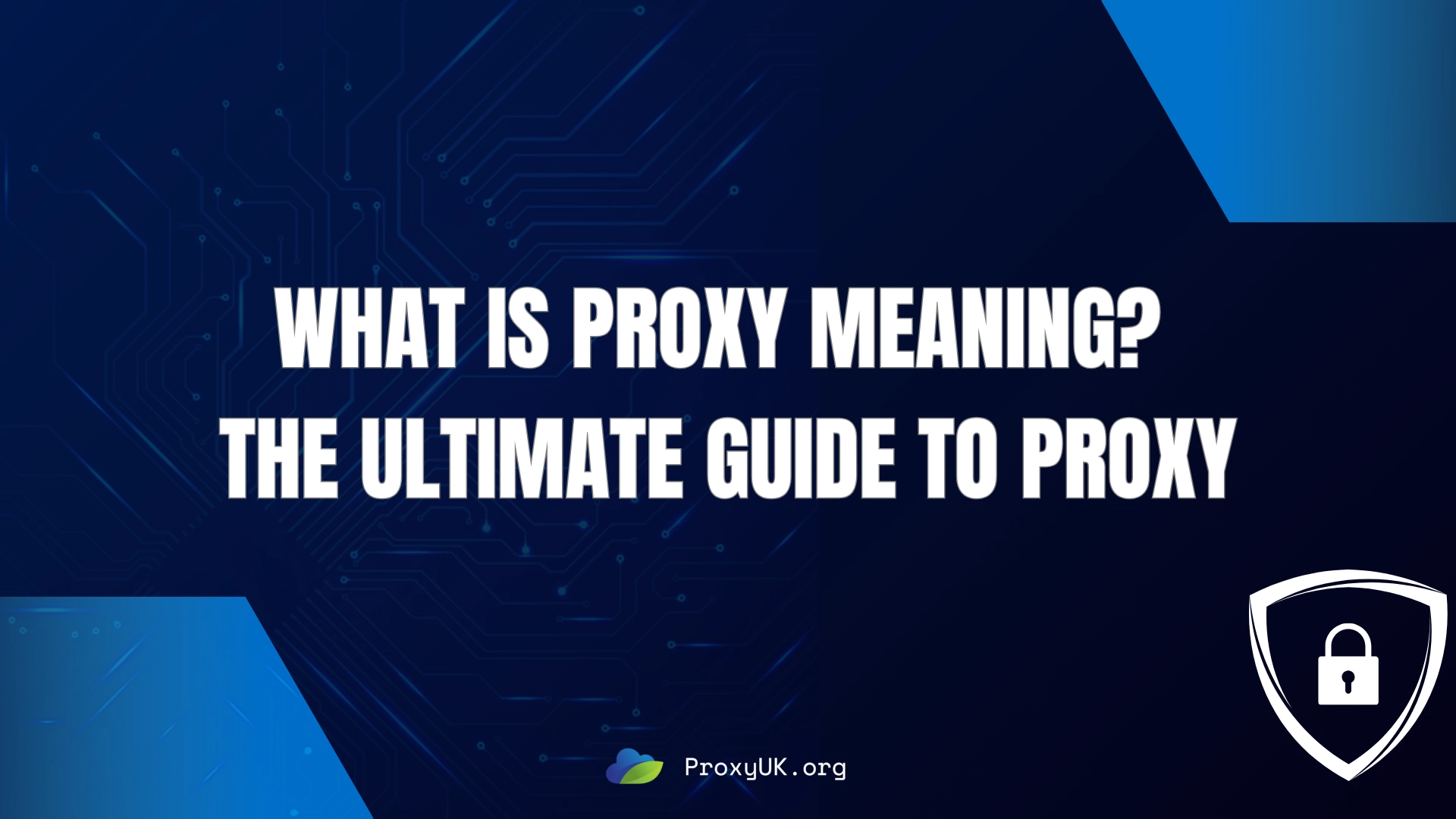
A proxy is a server that acts as an intermediary between a user’s device and the internet. Proxy can enhance security, improve performance, and provide anonymity.
Rather than directly connecting to a server to request a resource, such as a file or web page, the client sends the request to a proxy server. The proxy server processes the request, managing the necessary network interactions.
This approach simplifies and controls the complexity of the request, while offering benefits like load balancing, privacy, and security. Proxies add structure and encapsulation to distributed systems, acting on behalf of the client and potentially concealing the true origin of the request from the resource server.
Proxy servers can be used for content filtering, bypassing restrictions, and logging user activity. There are different types, including free proxy, reverse proxies, and anonymous proxies, etc… each serving specific functions and providing various levels of privacy and control.
How does Proxy work?
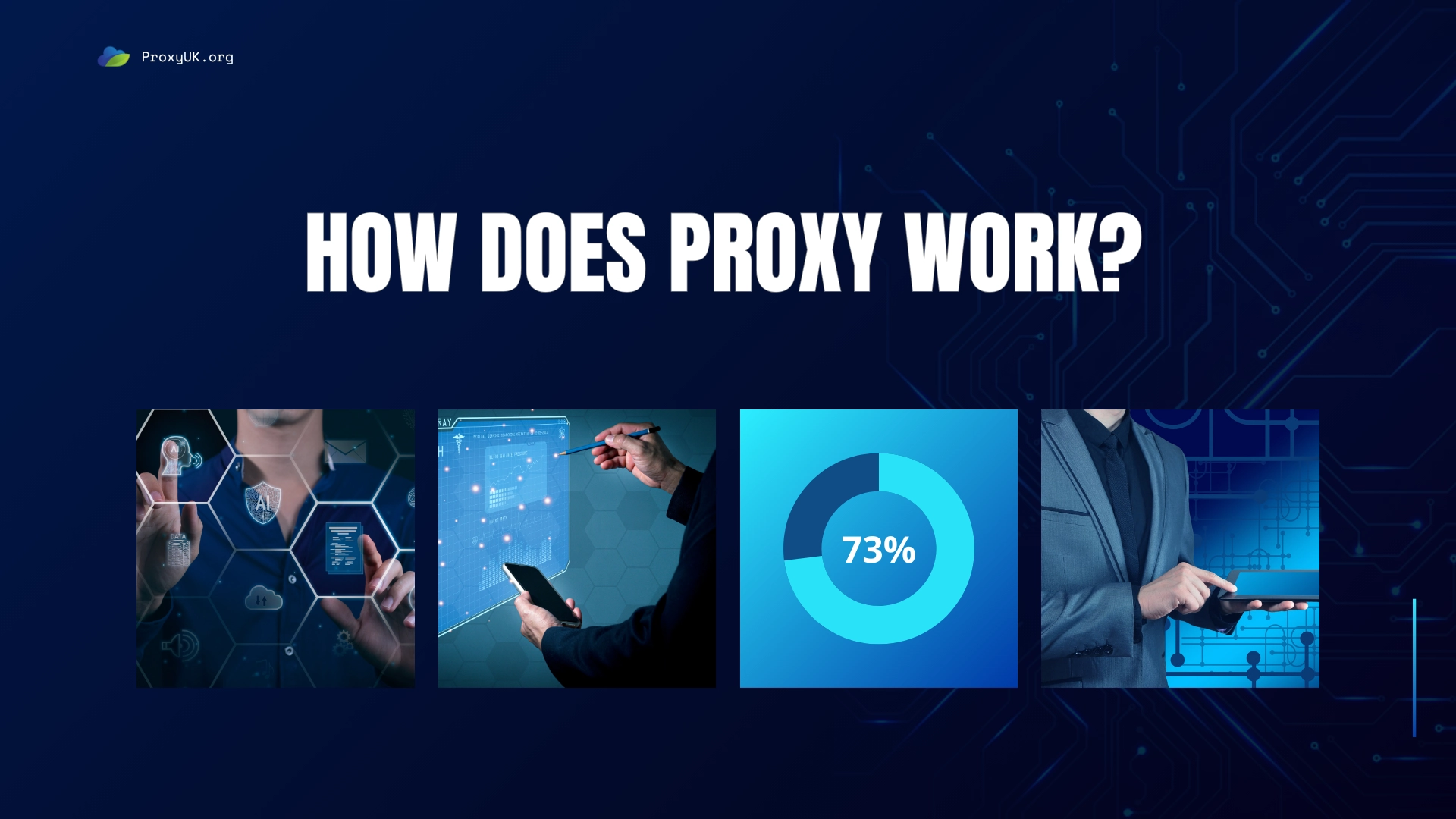
A proxy server works by acting as an intermediary between a client (such as a web browser) and a destination server (such as a website).Here’s how it works:
Client Request
The client sends a request for a resource to the proxy server instead of the destination server directly.
Proxy Processing
The proxy server processes the request, which might include filtering or modifying it according to specific rules or policies.
Forwarding Request
If allowed, the proxy server forwards the request to the destination server.
Server Response
The destination server responds to the proxy server with the requested resource.
Delivery to Client
The proxy server sends the resource back to the client.
Not all types of proxies work exactly the same way, although the general principles are similar.
Here are some variations:
HTTP Proxy
Handles web traffic. Clients send HTTP requests to the proxy, which forwards them to the web server and returns the response.
SOCKS Proxy
Can handle any type of traffic, not just web traffic. Works at a lower level, making it more versatile.
Transparent Proxy
Intercepts requests without modifying them. The client may not be aware of its presence.
Anonymous Proxy
Hides the client’s IP address but identifies itself as a proxy.
High Anonymity Proxy
Hides both the client’s IP address and the fact that it is a proxy.
Each type of proxy is designed for specific use cases and offers different levels of privacy, security, and functionality.
Benefits of using proxy
Using proxies offers several benefits, especially in the context of internet and technology:
Anonymity and Privacy
Proxies can mask your IP address, making your online activities more anonymous. This is particularly useful for maintaining privacy and security, as your real IP address is not directly exposed.
Access Control
Proxies can be used to access content that might be restricted based on geographical location or network policies. By routing your traffic through a proxy server located in a different region, you can bypass these restrictions.
Improved Security
Proxies can act as a buffer between your device and the internet, providing an additional layer of security. They can filter malicious traffic, block certain websites, or prevent attacks such as Distributed Denial of Service (DDoS).
Load Balancing
In a corporate or organizational setting, proxies can distribute incoming traffic across multiple servers, improving efficiency and preventing overload on any single server.
Content Filtering
Proxies can enforce content policies by blocking access to specific websites or types of content. This is useful in educational institutions, workplaces, or parental controls.
Performance Optimization
Caching proxies store copies of frequently accessed resources locally. This reduces bandwidth usage, speeds up access times, and improves overall network performance.
SEO and Web Scraping
In SEO (Search Engine Optimization) and web scraping tasks, proxies can be used to gather data from different geographical locations without being blocked or flagged by websites.
Cost Savings
Proxies can help reduce costs associated with managing and maintaining internet infrastructure by optimizing bandwidth usage and enhancing security.
Common use cases of proxy
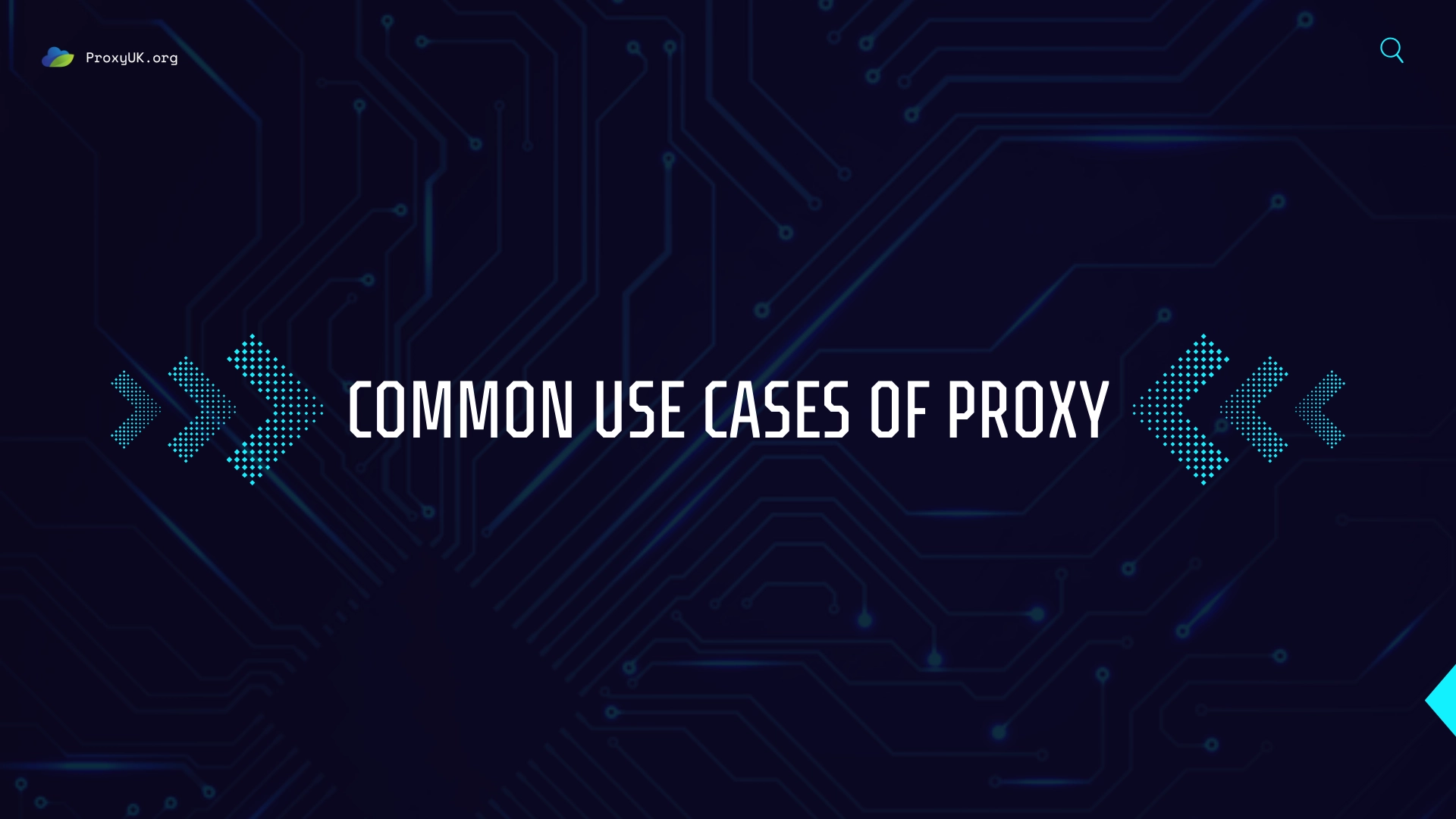
Proxies are utilized in a variety of scenarios across different industries and purposes. Here are some common use cases:
Marketing
Ad Verification
Proxies help marketers verify ad placements across different locations and devices, ensuring ads are displayed as intended.
Competitor Analysis
Proxies enable scraping of competitor websites to gather market insights and analyze marketing strategies anonymously.
Making Money Online (MMO)
Automated Tasks
Proxies allow MMO practitioners to automate tasks like social media engagement or data collection from multiple sources without detection.
Traffic Generation
Proxies help simulate organic traffic to websites or affiliate links, boosting visibility and potential earnings.
Search Engine Optimization (SEO)
Keyword Tracking
Proxies allow SEO professionals to track keyword rankings from different geographical locations, optimizing content for better search engine performance.
Backlink Analysis
Proxies facilitate scraping of search engine results to analyze competitor backlinks and devise effective link building strategies.
Financial Sector (Trading and Finance)
Market Data Access
Proxies provide secure and anonymized access to financial data sources, crucial for traders to make informed investment decisions.
High-Frequency Trading
Proxies optimize trading strategies by ensuring fast and reliable data access, essential for high-frequency trading operations.
Gaming and Entertainment
Gaming Servers
Proxies improve gaming experience by reducing latency and providing access to gaming servers from different regions.
Streaming Access
Proxies help bypass geo-restrictions on streaming platforms, allowing users to access content not available in their region.
Education and Research
Content Filtering
Proxies in educational institutions filter inappropriate content and control access to websites, ensuring a safe browsing environment for students.
Research Access
Proxies enable researchers to access academic journals and databases from different IP addresses, overcoming access restrictions and maximizing research capabilities.
Cybersecurity
Anonymity and Privacy
Proxies protect user identities and sensitive information by masking IP addresses, enhancing online privacy and security.
Threat Detection
Proxies intercept and analyze network traffic, helping cybersecurity teams detect and mitigate threats such as malware or unauthorized access attempts.
These examples illustrate how proxies are versatile tools used across various sectors to enhance operations, facilitate data gathering, ensure compliance, and improve overall efficiency in online activities.
In addition to these sectors, Proxy UK will elaborate on numerous other fields that require proxies in greater detail within the article Top use case of proxy.
How to use proxy?
Using a proxy involves configuring your device or application to route your internet traffic through a proxy server. Here are the general steps to use a Proxy
Buy Proxy
First of all, you have to purchase a proxy from a reliable proxy provider such as Proxy UK, ProxyV6, IPRoyal,…
Receive proxy Credentials
After purchasing a proxy service, users will receive the necessary credentials for access. These credentials usually include an IP address or domain name, a port number, a username and password for authentication.
Access Settings
Open the settings or preferences menu of your application or device where you want to use the proxy.
Find Network/Proxy Settings
Navigate to the network or connection settings. Look for options related to proxy settings.
Enable Proxy
Find the option to enable or use a proxy server.
Enter Proxy Details
Input the proxy server address and port number provided by your proxy service.
Save Settings
Save the settings and apply the changes.
These steps can be applied to web browsers, operating systems, and various applications to route your internet traffic through a proxy server for enhanced privacy, security, and access to restricted content. If you want to use a large of proxy, proxy manager will help you.
Legal Considerations and Responsible Use
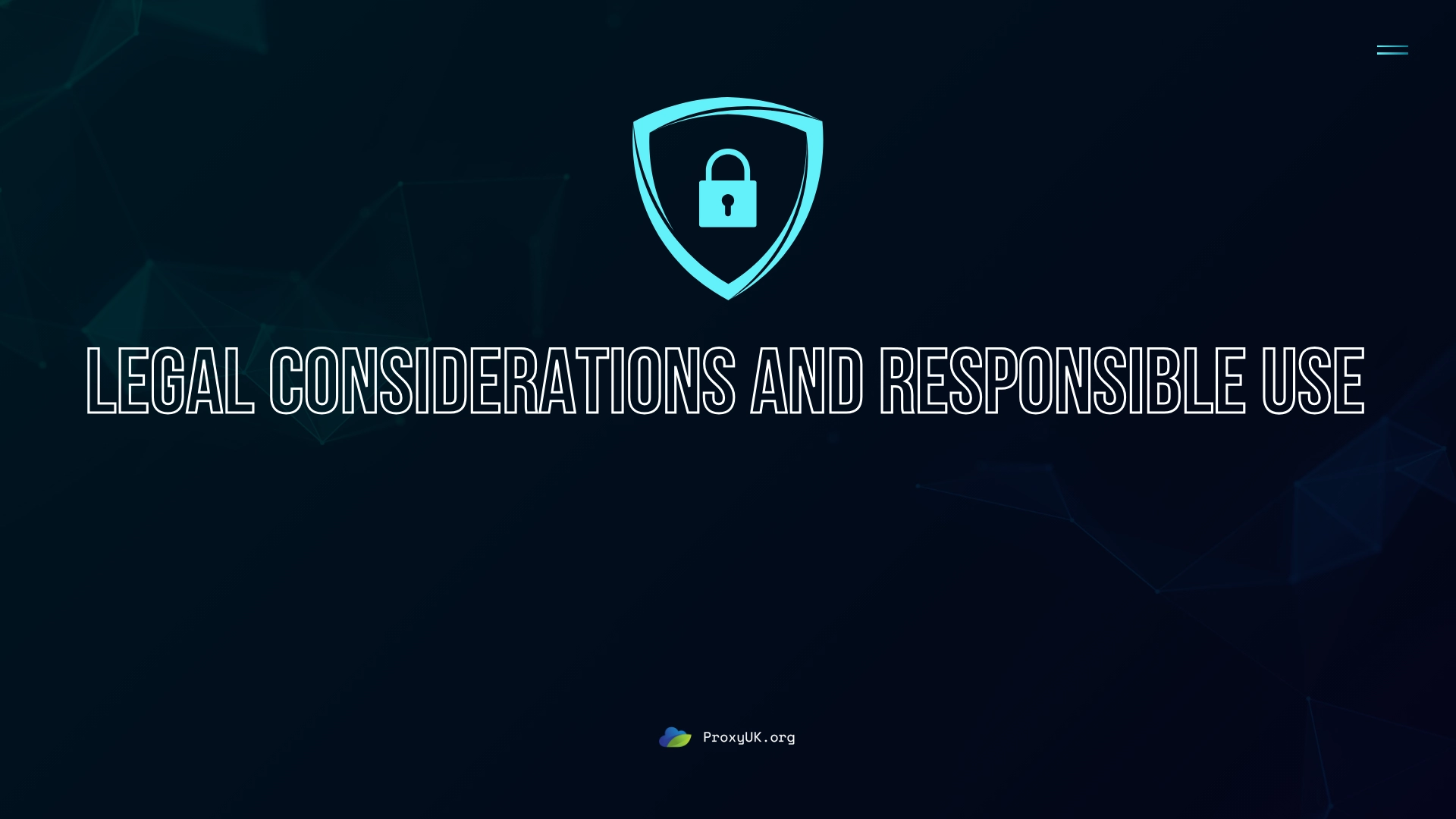
Using a proxy comes with certain legal considerations and responsibilities. It’s important to be aware of these to ensure you are using the service ethically and within the bounds of the law.
Legal Considerations
Compliance with Laws
Ensure that using a proxy complies with local and international laws. Different countries have varying regulations regarding internet use and privacy.
Bypassing Restrictions
Using proxies to bypass geo-restrictions or access blocked content can be illegal in some jurisdictions. Always check the legal implications in your region.
Terms of Service
Abide by the terms of service of both the proxy provider and the websites or services you access through the proxy. Violating these terms can lead to account bans or legal action.
Intellectual Property
Do not use proxies to engage in activities that infringe on intellectual property rights, such as illegal downloading or streaming of copyrighted material.
Data Privacy Regulations
Be aware of data privacy laws, such as the General Data Protection Regulation (GDPR) in the EU or the California Consumer Privacy Act (CCPA) in the USA. Ensure that your use of proxies does not violate these regulations.
Responsible Use
Ethical Browsing
Use proxies for legitimate and ethical purposes. Avoid activities that harm others or disrupt services.
Security Awareness
Understand that not all proxies provide the same level of security. Use reputable proxy services to ensure your data is protected.
Respect Privacy
Respect the privacy of others. Avoid using proxies to engage in invasive or unauthorized monitoring of individuals or organizations.
Usage Limits
Adhere to any usage limits or restrictions set by your proxy provider. Excessive or abusive use can lead to service termination.
Transparency
If using a proxy in a professional or corporate environment, ensure transparency with your employer or organization. Unauthorized use can result in disciplinary action.
By considering these legal aspects and adhering to responsible use guidelines, you can ensure that your use of proxy services is both ethical and lawful.
Buy Proxy at Proxy UK
Enhance your browsing experience with Proxy UK’s premium proxies, surpassing the constraints of free web proxies. Our proxies deliver exceptional speed, robust security features, and dependable connections, guaranteeing seamless and safe browsing. Opt for Proxy UK today and enjoy unparalleled online freedom.
FAQs About proxy
Yes, using a proxy can have some drawbacks. Some proxies may log your data, which raises privacy concerns. Not all proxies offer encryption, making your data vulnerable to security risks. Proxies can also slow down your internet connection and free proxies might be unreliable. Additionally, they may not support all applications, limiting their usefulness. Generally, using a proxy is legal for legitimate purposes like privacy and accessing geo-blocked content. However, using proxies for illegal activities or violating terms of service is illegal. Check local laws for specific regulations. The choice between a proxy and a VPN depends on your needs. Proxies are generally faster and cheaper, good for specific tasks like accessing geo-blocked content. However, they provide limited security and only cover certain types of internet traffic. VPNs, on the other hand, encrypt all your traffic and offer better privacy and security, but they can be slower and more expensive.Can using a proxy bring any drawbacks?
Is using a proxy legal?
Proxy or VPN: Which is better?

